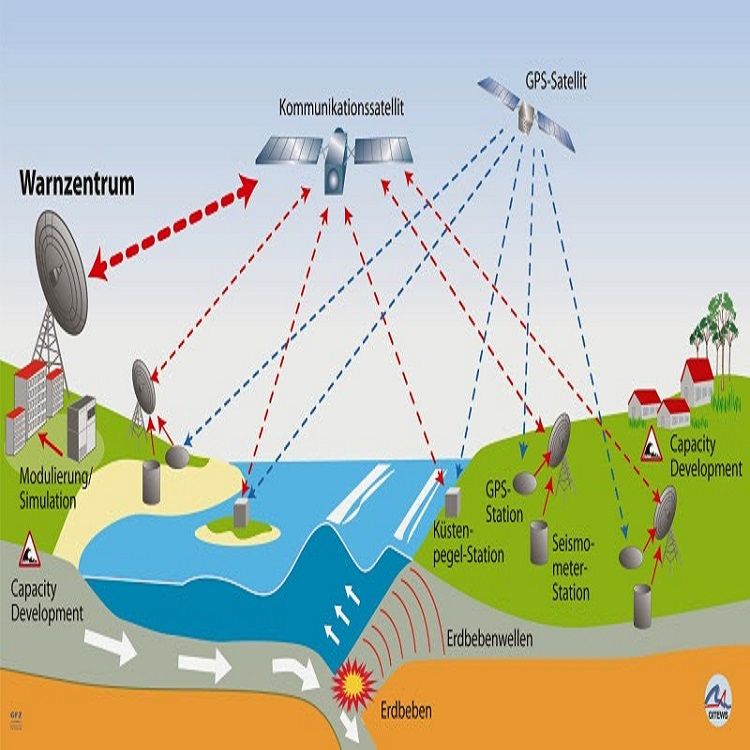Disaster Risk Reduction
Schedule
Mon Feb 13 2023 at 09:00 am to Fri Feb 17 2023 at 04:00 pm
Location
Fahari Palace Serviced Apartments | Nairobi, NA

Advertisement
Course title: Disaster Risk ReductionDates and registration links:
13/02/2023 to 17/02/2023: http://bit.ly/3GVQPNc
22/05/2023 to 26/05/2023: http://bit.ly/3EOQzwT
24/07/2023 to 28/07/2023: http://bit.ly/3GQIlad
18/09/2023 to 22/09/2023: http://bit.ly/3VnneAQ
27/11/2023 to 01/12/2023: http://bit.ly/3GUa89D
INTRODUCTION
Disaster Risk Reduction (DRR) skills are fundamental to the process of increasing awareness on natural hazards and disaster risk reduction to key stakeholders with knowledge on disaster management to empower the actors to support their organizations in developing disaster resilient programs and projects. In order to build the capacity of Development professionals who are actively engaged in the Development and Emergency response activities in governmental and non-governmental organizations, this one week course will provide hands-on training in DRR and the application of Knowledge to decision making in DRR planning and Management. The workshop offers intensive training that will cover the fundamental concepts and tools for DRR. People-centered early warning systems empower communities to prepare for and confront the power of natural hazards and measurement of the systems in terms of lives saved and reduction in losses, which is directly related to the execution of an anticipated response by the people and institutions once a warning is issued. This training will also address traditional views on early warning systems, and what it takes to transform them into efficient, people-centered systems. The workshop also presents a practical guide for using a geographic information system (GIS) to integrate, visualize, and analyze geographically-referenced data extracted from key data sets to facilitate DRR.
DURATION
5 days.
COURSE OBJECTIVES
After the course, participants will be able to:
• Understand disaster risk reduction concepts and DRR conceptual frameworks and institutional mechanisms
• Identify and understand the causes and impacts of various hazards locally, Regionally and globally
• Identify disaster risk reduction strategies and opportunities in programming
• Monitor programmer inputs, processes and results required for management of DRR.
• Understand concepts, methods, and tools for monitoring of DRR in Humanitarian response, emergency response and development programs
• Identify ways to overcome barriers to conducting effective Disaster Risk monitoring.
• Conduct disaster Risk monitoring using appropriate methods and tools.
• Get basic knowledge of analyzing qualitative data for humanitarian, emergency and development sector programmers related to DRR
• Use Geographic Information Systems (GIS) and GPS to gather data, collaborate and share information.
• Communicate findings to stimulate learning and reflection.
COURSE OUTLINE
Module 1:
Understanding disaster risk reduction.
• Key concepts and Terminologies.
• The Disaster cycle and disaster risk Reduction
• The Hyogo framework for implementation
• Post 2015 framework for DRR
• Community based Disaster Risk Management (CBDRM) framework for DRR.
Insights into global and regional perspectives of hazards and disaster risk reduction
• How have hazards and disasters, shaped global disaster risk, reduction agenda?
• Disaster risk reduction as a national and a local priority Agenda
• Disaster reduction strategies and legal frameworks
• Disaster risk reduction and mitigation measures
• Mitigation, prevention, minimization and risk reduction strategies
Module 2:
The process of Identifying, assessing and monitoring disaster risks and enhancing early warning
• Hazard, vulnerability and disaster risk
• Introduction to hazards, vulnerability and capacity assessment (HVCA)
• Using knowledge, innovation and education to build a culture of safety and resilience at all levels
Module 3:
Disaster Preparedness, Early Warning and mitigation
• Understanding “disaster preparedness”
• The respective components of a disaster preparedness mechanism
• Understand early warning systems
• Understand and develop early warning framework
• Disaster contingency planning (National, regional and community contingency plans)
• Insights into effective response mechanisms Strengthening at all levels
Module 4:
Community participation
• Introduction to community participatory tools and techniques
• Organizing and conducting a participatory risk assessment
• The key elements of people-centered early warning systems
Code of conduct in disaster response
• Planning DRR strategies
• Monitoring and evaluating the impact of DRR strategies
• How to incorporate DRR into various humanitarian sectors
Module 5:
Use Geographic Information Systems (GIS) and GPS to gather data, collaborate and share information on DRR
• Mapping peoples’ historical knowledge of the location, frequency, spatial extent and intensity of frequent hazards
• Participatory mapping copying strategies, resilient adaptation
• Participatory mapping of urban hazards
Advertisement
Where is it happening?
Fahari Palace Serviced Apartments, Westlands Church road,Nairobi, KenyaEvent Location & Nearby Stays: